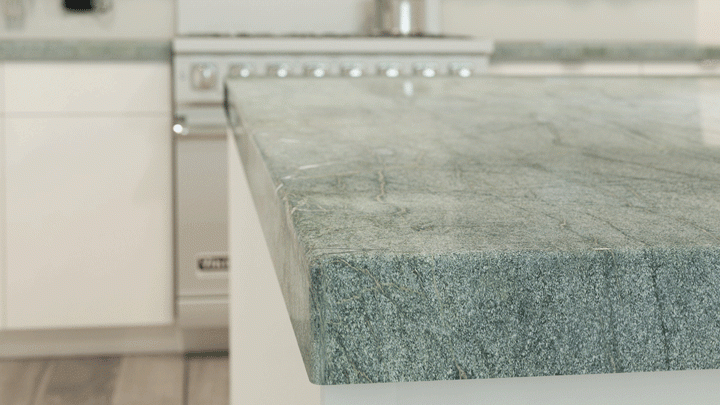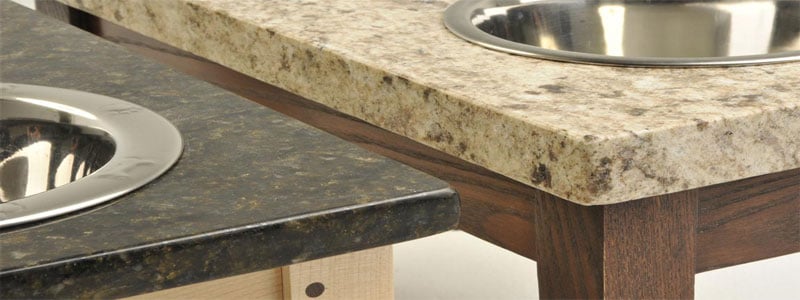Granite kitchen countertops typically measure 1 to 1.25 inches (2.54 to 3.18 cm) in thickness. This standard measurement ensures durability and support for everyday kitchen use.
Selecting the ideal granite countertop for your kitchen contributes to both its functionality and aesthetic appeal. As a focal point of culinary spaces, granite countertops offer a harmonious blend of natural beauty and robust performance. They come in various colors and patterns, providing homeowners with a wide range of design options.
The thickness of the granite not only influences the visual heft and feel of the counters but also plays a crucial role in the long-term resilience and maintenance requirements. With granite’s popularity in kitchen design, understanding these details helps homeowners make informed decisions about their kitchen renovations or updates.

Credit: www.signaturemarbleandgranite.com
How Thick Should A Granite Kitchen Counter Be?
Choosing the right thickness for a granite kitchen counter is crucial for both design and functionality. It can affect the countertop’s durability, appearance, and cost. Let’s dive into what thickness suits your kitchen best.
Standard Thickness For Granite Kitchen Counters
Granite countertops commonly come in two thicknesses: 2 cm (20 mm) and 3 cm (30 mm). In the United States, 3 cm granite thickness is preferred for its strength and aesthetic appeal.
Factors To Consider When Choosing The Thickness Of A Granite Kitchen Counter
Several factors influence your choice of granite slab thickness in mm:
- Design Style: Thicker slabs often look more luxurious and substantial.
- Support Structure: Ensure cabinets can support the weight of thicker granite.
- Usage: High-traffic areas may benefit from thicker granite for durability.
- Cost: Thicker granite usually costs more due to material and installation.
Thick Vs. Thin Granite Kitchen Counters: Pros And Cons
| Thickness | Pros | Cons |
|---|---|---|
| 2 cm |
|
|
| 3 cm |
|
|
The minimum granite thickness for kitchen counters is 2 cm, but 3 cm is often recommended for its durability and strength. When deciding between thick and thin granite countertops, consider the pros and cons to find the best fit for your kitchen.

Credit: marble.com
Frequently Asked Questions
What Is The Standard Thickness Of Kitchen Countertops?
The standard thickness of kitchen countertops is typically 1 to 1. 5 inches (2 to 3 centimeters).
How Thin Can Granite Countertops Be?
Granite countertops can be as thin as 3/4 inch (about 2 cm), though 1 1/4 inch (about 3 cm) is more common for enhanced durability.
What Is Better 2cm Or 3cm Granite Countertops?
3cm granite countertops are generally considered better as they offer enhanced durability and strength compared to 2cm countertops.
What Is The Standard Granite Countertop Depth?
The standard granite countertop depth typically measures about 25. 5 to 26 inches.
What Is The Standard Thickness Of Granite Counters?
Granite countertops typically range from 1. 25 to 1. 5 inches thick. This provides a robust and durable surface.

Credit: graniteliquidators.com
Conclusion
Selecting the perfect thickness for your granite kitchen countertop is crucial for both aesthetics and functionality. Standard options typically range from 1 to 1. 25 inches. Your choice can influence the countertop’s durability, cost, and installation process. Always consult with a professional to ensure the best fit for your kitchen’s design and your personal needs.
With the right thickness, your granite countertop will be a stunning and lasting addition to your home.

